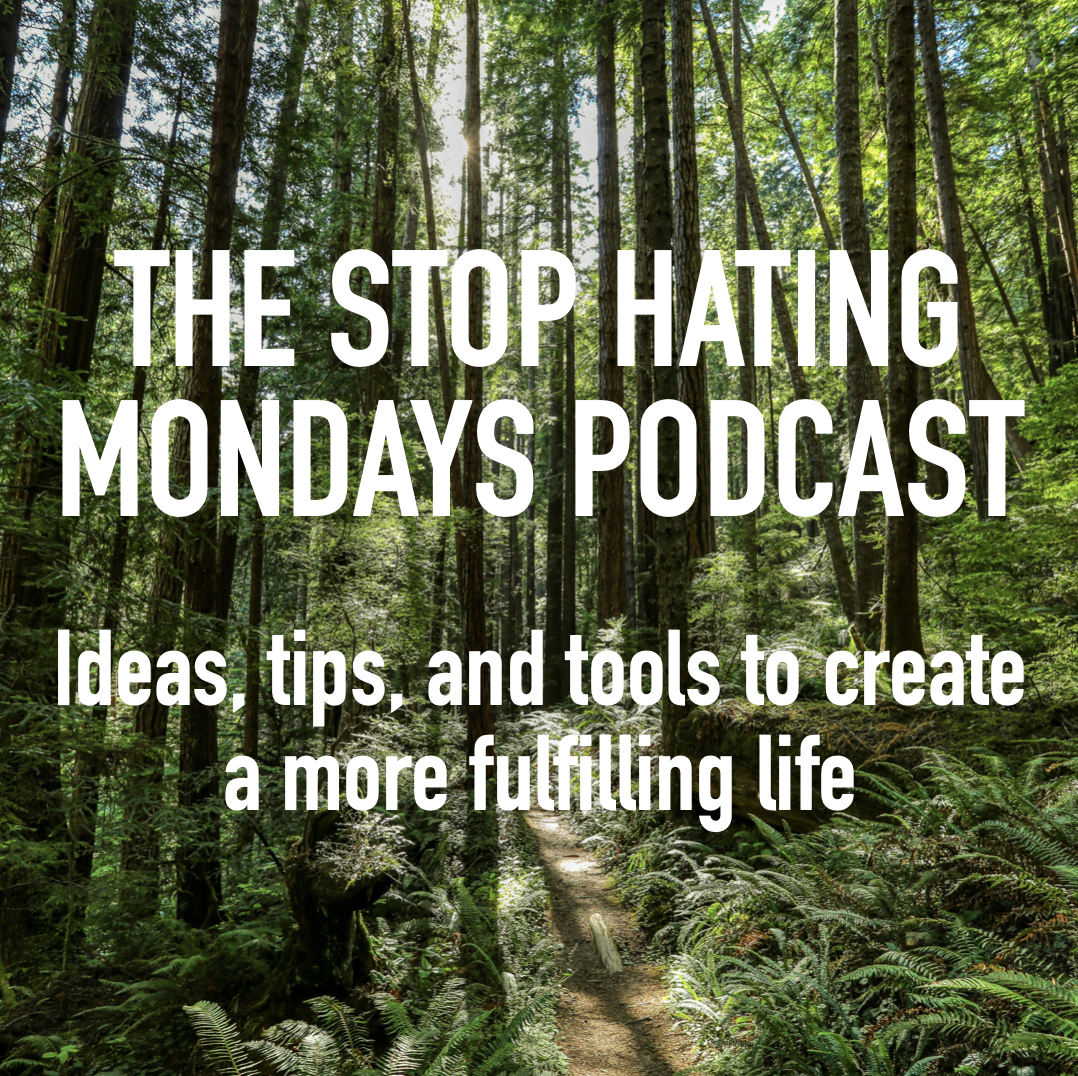How to Think About Values
Kent R.
In the spirit of the New Year, we're making this season of the Stop Hating Monday's podcast an extension of the last season's focus on personal development. And we're kicking it off with a conversation about values: what they are, why they matter, and how knowing your values can be even more transformational than knowing your strengths.
Subscribe to the Stop Hating Mondays Podcast on Apple Podcasts, Spotify, Google Podcasts, Stitcher, Amazon Music, or Overcast.
TRANSCRIPT
Caanan
In the spirit of the New Year, we're making this season of the Stop Hating Monday's podcast an extension of the last season's focus on personal development. And we're kicking it off with a conversation about values, what they are, why they matter, and how knowing your values can be even more transformational than knowing your strengths.
Caanan
So we received a question from Samuel a few months back that I've been actually holding off on because it's the perfect kickoff to this season. So, thank you Samuel for that question and sorry this one took a while to get to. Sam wrote, “I don't fully understand the difference between my strengths and values.” So can you break down the difference between strengths and values for Sam and everybody else who's listening.
Kent
Yeah, this is a common question, of course, and people are ever increasingly interested in learning particularly about their strengths. But I think when we work with people or work groups, talk of values is often surprising to people. They voice familiarity with the idea of knowing their strengths and even their teams strengths. But oftentimes people are surprised when we start talking about values. And much like Samuel, are sort of confused… I don't think so confused about what values are, but how that plays in to the equation here. So we write about this in our manual, Stop Hating Mondays. And I'm just going to read right from it:
In order to be yourself. You have to know yourself. And knowing yourself means understanding what your strengths and values are. So first your strengths are your innate talents and attributes – the things that come most naturally to you. Next, your values are your guiding principles – the aspects of life that truly matter to you now.
Interesting, you can sort of evaluate these two things separately, but I've come to learn over the years – over the work that we've done – that oftentimes if you start with strengths, which we recommend that people do, that self-knowledge of your strengths will help you determine what your values are. I should say they make more sense of what your values are because there's a lot of – in the process of determining your values – like, “oh, that resonates with me and that makes sense because my strengths are blank, blank, blank, blank.” So you want to look for your strengths first and then move on to your values. We often talk about values as being kind of strengths in action. You want to put your strengths to work toward those guiding principles. Towards, as I said, those aspects of life that truly matter to you.
Caanan
That's a really good take away: values are your strengths in action. Is that what you said?
Kent
Yeah. Yeah. Pretty much. Like it's a good way to look at it. Or it's the way that we, in our consulting business, give action to what our strengths and what our values.
Caanan
Not everyone intuitively understands why self-knowledge is important, so with clients we talk a lot about the practical aspects of self-knowledge. Can you share some of the most valuable practical aspects of self-knowledge? You know, of knowing your strengths and values?
Kent
Yeah, that's funny that this just came up in an e-mail I got from somebody this morning, in which she was basically saying “I know my strengths and in a way it's actually making me feel worse about myself. Because I kind of know what my strengths are – I've done a lot of work about that – and now I just feel this big void having more knowledge and seeing that gap between what I know and what I'm actually doing.”
And this is actually the at the core of which you're asking, which is why you do this and what we always say is this information – self information – is much like any kind of information. Nobody can take it from you. So do we or does anybody expect if you learn your strengths today, your life is going to change tomorrow? No. It's just like any information that you gather about yourself or anything. It's knowledge and nothing can take that away from you and. Much like you learn in a broad-based education, self-knowledge will certainly boost and inform your actions at some point. It may not happen right away. There's ways that you can help make it actionable right away, which is what we help people with, but basically – to answer that question – you know where we say you are your best invest investment? That means that building a basic understanding of your strengths and values is the most valuable thing you can do.
Caanan
This framework, yes! that's the key. I'm glad you got there because knowing your strengths does not change your life overnight. It's not going to be this immediate return. But it provides a framework for decision making, yes. So once you know that, you start making more strengths aligned decisions and that does change your life!
Kent
Exactly, and I would really say too – and this is right from Stop Hating Mondays:
Without this framework and this sense of foundation it provides – “this framework” meaning knowing your strengths and values – all other investments (time, energy, love, money) are going to fail to fulfill.
Sort of put it another way, you can't build a life free of Mondays without first knowing yourself. You will not realize the full impact of even positive things without knowing yourself. Knowing how that positive change is a very important step of the process, so to maximize your fulfillment this framework is essential.
Caanan
You've answered this question before in the podcast. Oh, you've probably answered it several times. But it's such good information I’ll have you do it again. Can you give listeners a tip for how to start accessing everything we're talking about? How to get going with knowing your strengths and your values?
Kent
Yeah. So an exercise – which is always a huge initial a-ha for people – you've got to take an inventory. Most good change starts from taking an inventory. And we always tell people to be sure that they closely document how they're spending two weeks in their life. What are the activities they're engaging in? And then you go back and you look at those activities. And you determine what really mattered to you. What didn't matter to you. What were you doing just for other people? What were you doing for your own fulfillment?
It helps you to determine when you're acting in alignment with your strengths and when you're acting in alignment with your values. Even if you don't know what your strengths and values are at that point, you can start to see, “Oh, wow! I'm always energized when I'm doing X activity.” There's a good chance that that activity then links right back to your strengths or values, or ideally both.



